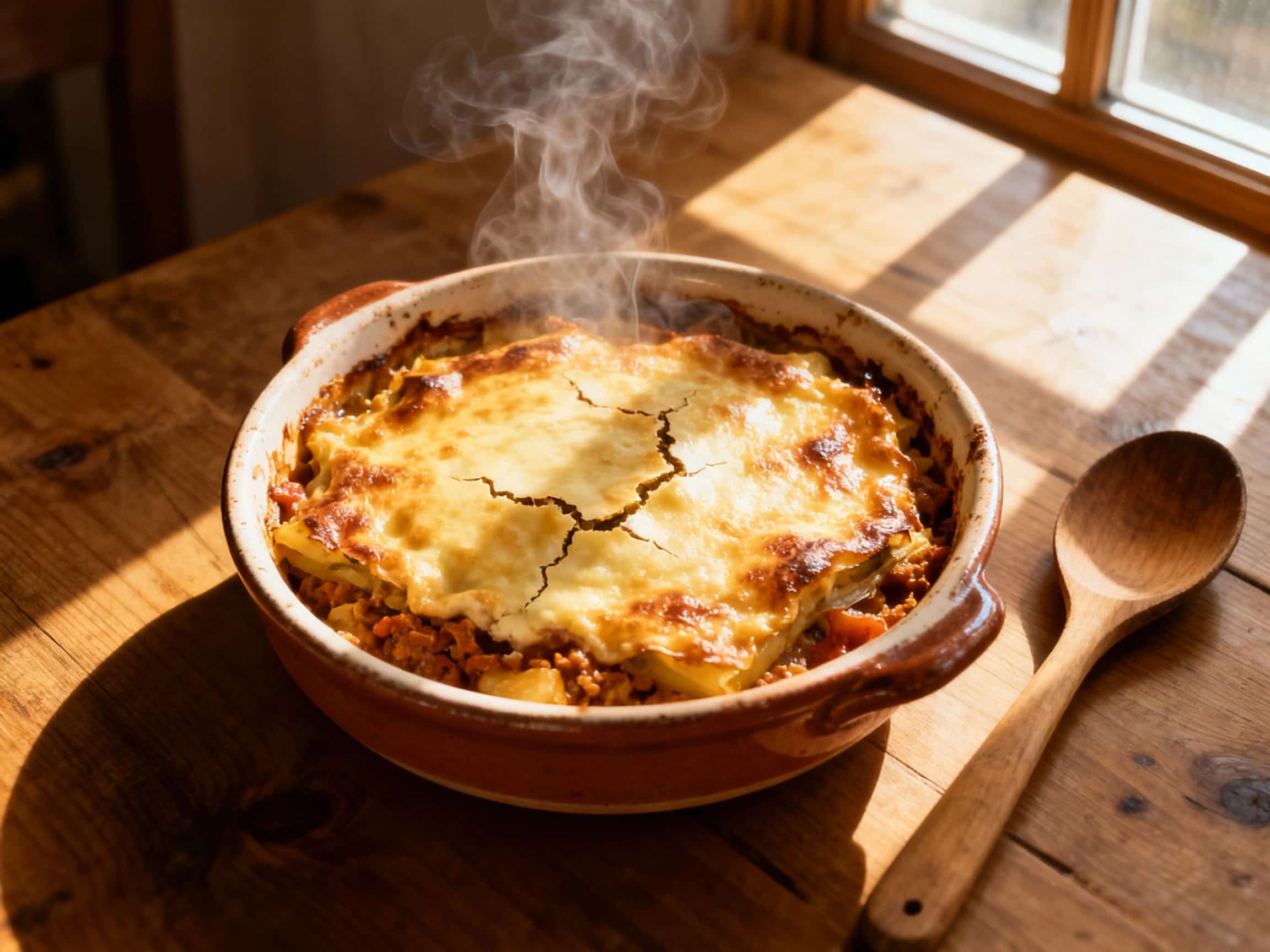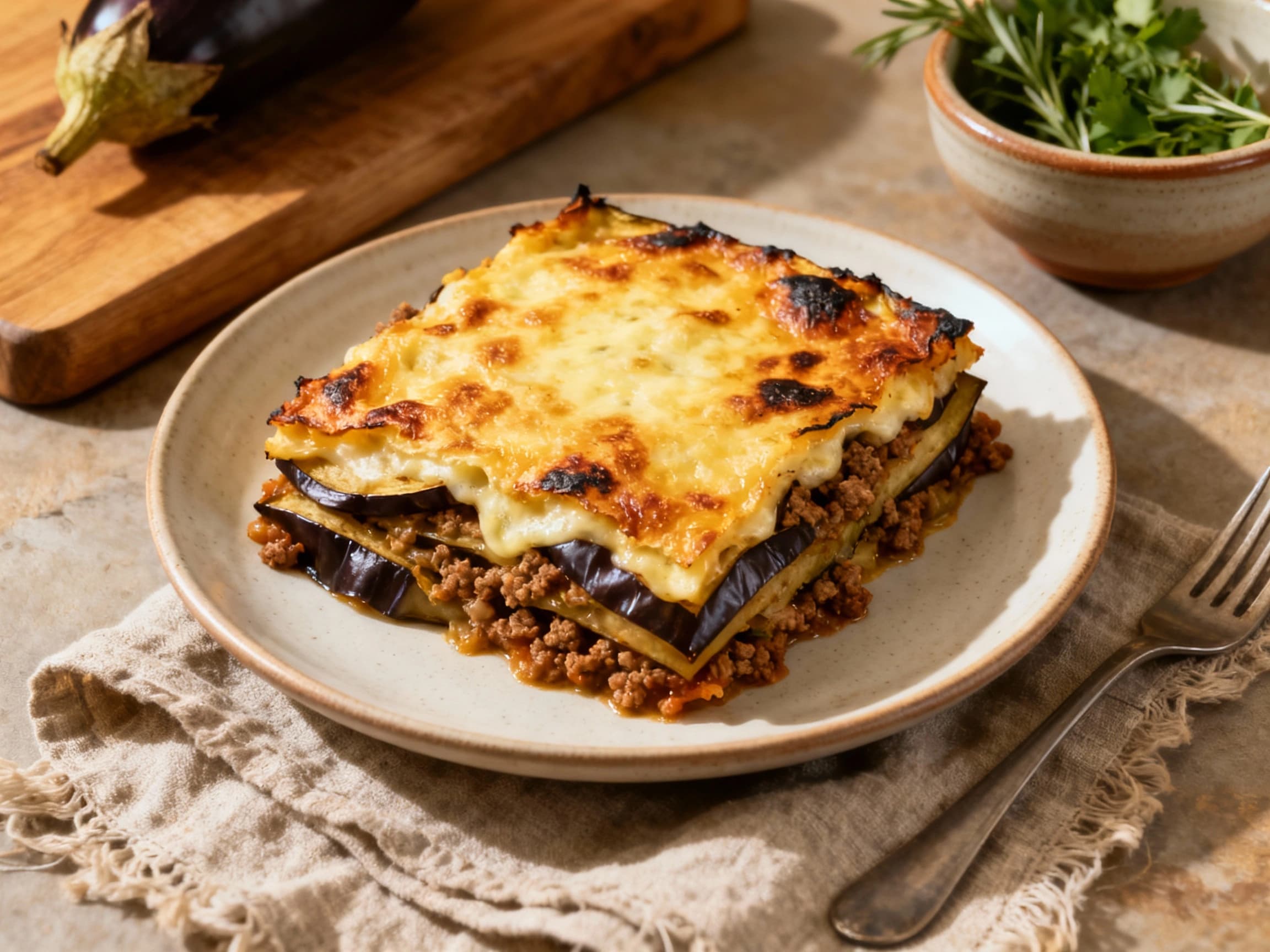
Moussaka
Μουσακάς
- Country
- Greece
- Region
- Thessaly
- Recipes
- 3 Recipes
Origins & Characteristics of Moussaka
Moussaka (Μουσακάς) is a layered eggplant dish, a cornerstone of Greek and Balkan cuisine, with variations found across the Levant. Its origins are often traced back to the early 20th century and the influence of French culinary techniques, particularly the béchamel sauce, introduced by chefs like Nikolaos Tselementes. However, simpler, meat-and-vegetable casseroles have ancient roots. The dish typically consists of a base layer of sautéed or fried eggplant slices, followed by a rich filling of minced meat (often lamb or beef) simmered with tomatoes, onions, garlic, and spices like cinnamon and allspice. The crowning glory is a thick, creamy béchamel sauce, sometimes enriched with egg yolk or cheese, which bakes to a golden, custardy finish. Moussaka is a labor of love, often prepared for special occasions and family gatherings, embodying the warmth and generosity of Mediterranean hospitality. Regions like Thessaly are known for their robust versions, often featuring local ingredients and distinct spice blends. Its enduring popularity has made it a symbol of Greek comfort food, enjoyed both in traditional tavernas and modern kitchens worldwide.
History of Moussaka
Nikolaos Tselementes influences modern Greek cuisine, promoting French techniques like béchamel sauce.
Early versions of layered meat and vegetable gratins emerge in Greece.
Moussaka solidifies its place as a popular national dish in Greece.
Moussaka gains global recognition as a classic Greek comfort food.


